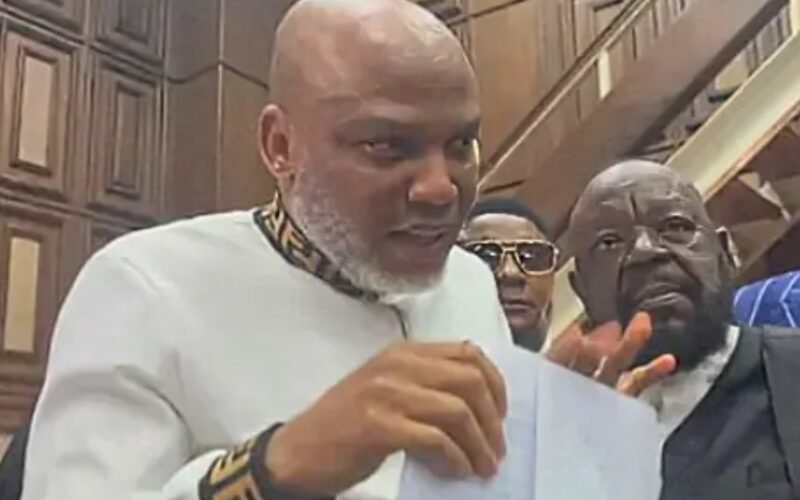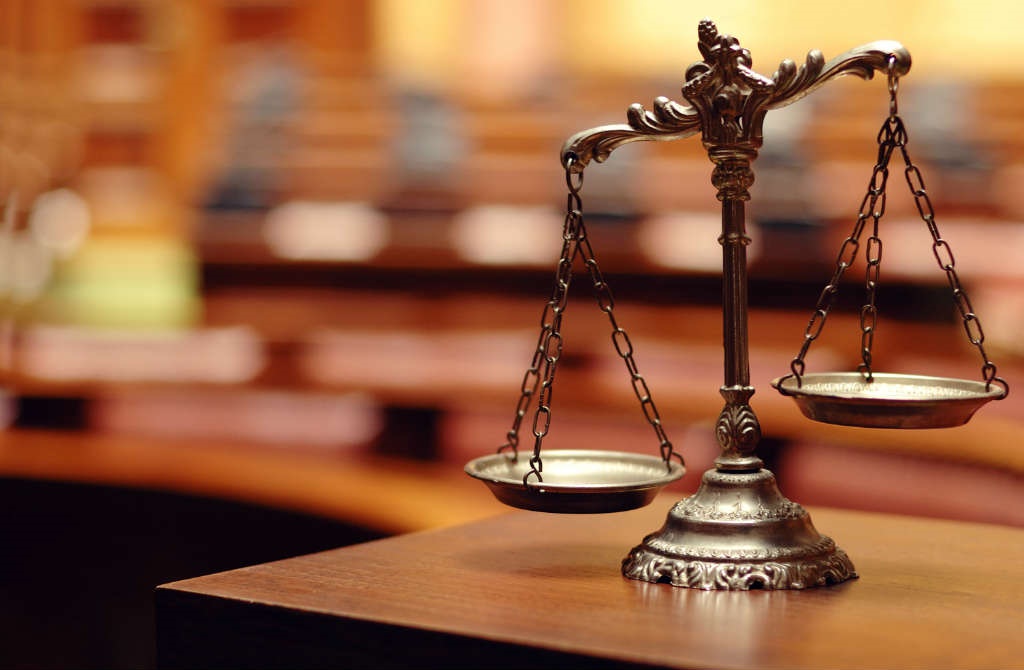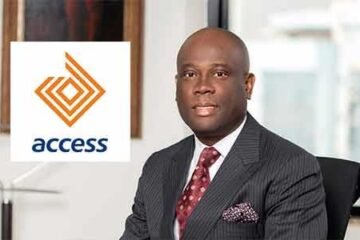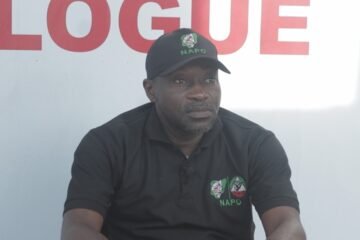Terrorism Trial: Nnamdi Kanu Lists Witnesses from U.S., Kenya, and Ethiopia
Nnamdi Kanu, leader of IPOB, tells the Federal High Court that 23 defence witnesses from the U.S., Kenya, and Ethiopia will testify in his terrorism trial. Justice Omotosho grants extended visitation for legal access.
The renowned leader of the proscribed Indigenous People of Biafra (IPOB), Mazi Nnamdi Kanu, has informed the Federal High Court in Abuja that his defence witnesses will be arriving from several countries, including the United States, Kenya, and Ethiopia.
Kanu, who has chosen to represent himself in the ongoing terrorism trial instituted by the Federal Government, made this declaration before Justice James Omotosho on Friday.
Standing in the dock, Kanu introduced himself to the court, saying,
“I am Mazi Nnamdi Kanu; I stand for myself.”
According to the News Agency of Nigeria (NAN), the IPOB leader had, on October 21, filed a motion listing 23 witnesses he intends to call in his defence. The witnesses, he stated, are divided into two categories — “ordinary but material witnesses” and “vital and compellable witnesses”, the latter to be summoned under Section 232 of the Evidence Act, 2011.
Kanu also requested the court to grant him 90 days to conclude his defence, citing the number of witnesses and the international nature of their travel.
He informed the court that he was not yet ready to open his defence because his legal team, led by Chief Kanu Agabi (SAN), had withdrawn from the case the previous day and had yet to hand over his case file.
“My lord, my counsel left the case yesterday, and I have not received the file from them. The few people that would have brought it were prevented from seeing me,” he said.
The IPOB leader further lamented the restricted access he has at the Department of State Services (DSS) facility, where he is being detained. He explained that his current visitation schedule — two hours every Monday, Wednesday, and Friday — was insufficient to prepare for trial and coordinate with his legal team and witnesses.
“I have about 23 witnesses who will be coming from Ethiopia, Kenya, and the United States. I want the court to make an order so that these people can have access to me,” Kanu pleaded.
In response, Chief Adegboyega Awomolo (SAN), who appeared for the prosecution, noted that the case was already slated for defence and that Kanu had been given ample time to prepare.
He told the court that the prosecution had been trying to serve summons on the witnesses listed by Kanu but had found no record suggesting that any were arriving from abroad.
Awomolo did not oppose the adjournment request but urged the court to uphold the existing order requiring the defendant to open his defence within ten days.
“The defendant wasted yesterday; this is the second day, my lord. I urge your lordship to maintain the standing order,” he said.
Justice Omotosho, who expressed surprise at Kanu’s claim that his case file had not been released by Chief Agabi, nonetheless granted an adjournment to allow him adequate time to prepare.
The judge also approved Kanu’s request for expanded visitation, directing the DSS to allow him to meet with his legal team on Saturdays and Mondays for trial-related consultations.
“This is hereby granted. The DSS should give him access on Saturday and Monday to have access to his counsel,” Justice Omotosho ruled.
He reminded the defendant that the court had already granted an accelerated hearing, with both morning and afternoon sessions arranged to ensure speedy proceedings.
“I will beg the defendant in the name of Almighty God to make use of this opportunity. Not doing so will deny other defendants their right to trial,” the judge cautioned.
Justice Omotosho also directed the DSS to provide a suitable facility where Kanu and his legal team could hold pre-trial meetings, adding that he would no longer vacate the courtroom for such sessions.
The matter was adjourned until October 27 for Kanu to open his defence.





